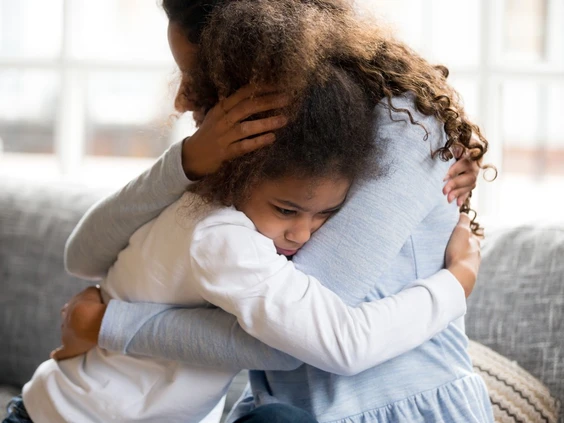— Death will touch our children. They will have questions, some of which are unanswerable.

BY Hayley Juhl
It can be unnerving when your child works death into their imaginary play. It’s the thing we most want to shield them from, and their game feels dark and frightening.
Playing pretend is how children build order in their expanding worlds and gain control over situations that are far bigger than them. It is no different than adults turning a series of possibilities around in their minds — it’s just that youth offers the freedom to play each of the parts out loud. It is natural and good.Does it hurt to die? Where does the person go? Why did it happen to them? Are you going to die? I am going to die?
Every one of those questions must be addressed, even if you have to say, “I don’t know, but we can talk about it together.” Use clear, age-appropriate language and avoid phrases like “gone away” and “departed,” as younger children don’t understand forever and might struggle with reality that the person isn’t coming back. “They have left us” is wrapped in an extra layer of abandonment; “gone to sleep” will terrify them come bedtime.
Children under 2 do not comprehend death, though they have strong feelings of attachment and insecurity, according to Child Bereavement UK, which breaks down children’s understanding by age. Once they are teenagers, they are more likely to deal with death and grief by withdrawing and seeking the support of their peers.
Preschoolers might not react the way we expect them to when they are told someone has died, and might frequently ask when the person is coming back. This is the time they are most likely to talk and play about death and show interest in how it works. Keep answers short and clear and don’t offer more information than they ask for, as it can confuse them and heighten their anxiety.
By the time they are in elementary school, they begin to understand that everyone — including their families and themselves — will die.
“Children’s imagination and ‘magical thinking’ can mean that some children may believe that their thoughts or actions caused the death, and they can feel guilty,” Child Bereavement UK says. If their questions aren’t answered, they might fill in the gaps on their own. They must be made to feel comfortable asking questions, and we should take this opportunity to reassure them they could not have done anything to prevent the death.
Children who experienced the death of a loved one at a young age might need to reprocess their feelings as their understanding grows, Child Bereavement UK says. Conversations about death are not a one-and-done.
Don’t wait until the last moment. The Montreal Children’s Hospital advises thinking and talking about death before it touches our children’s lives.
“Many parents wait until a death occurs to work with their children on dealing with the idea of death,” the Children’s says, “But that can be especially difficult if the parents are dealing with grief themselves.”
Complete Article ↪HERE↩!
